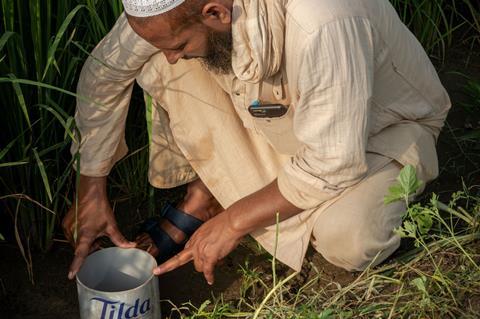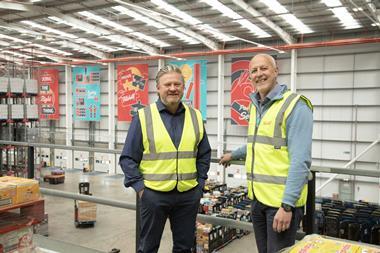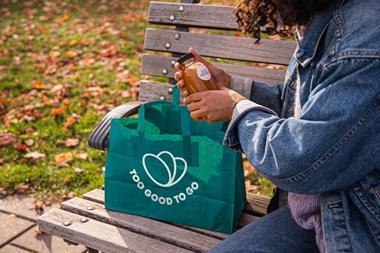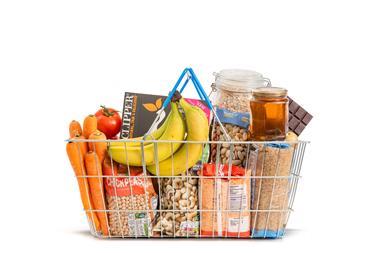
Tilda has taken further steps to reduce the environmental impact of rice cultivation through its Alternate Wet and Dry (AWD) growing programme for basmati rice, along with other sustainability initiatives outlined in its 2023-2024 Impact Report.
The efforts form part of an ongoing commitment to remain one of the world’s most responsible rice producers, while also addressing the social and economic needs of farming communities. Traditional rice farming uses between 3,000 and 5,000 litres of water per kilo of rice as the crop is usually grown in permanently flooded fields. But this traditional method produces large amounts of methane as a by-product.
By contrast, the AWD irrigation technique is a more sustainable way of growing rice that allows fields to largely dry out between floods, reducing the release of methane.
Jean-Philippe Laborde, managing director of Tilda, said: “Rice is a key staple for billions of people, but sadly the traditional methods of cultivation contribute significantly to climate change. Through AWD, we’re proving that it is possible to produce rice in a way that is not only more sustainable but also beneficial for farmers, who are also seeing both cost savings and improved yields as a result of using this method.
In addition, Tilda is aiming to ensure all its packaging is 100% recyclable by 2027, in line with the UK’s upcoming kerbside collection system. This is part of its broader commitment to creating a circular economy, where waste is minimised, and materials are reused or recycled.










![WG-4003[58]](https://d2dyh47stel7w4.cloudfront.net/Pictures/274x183/4/5/1/353451_wg400358_6083.jpg)

















No comments yet